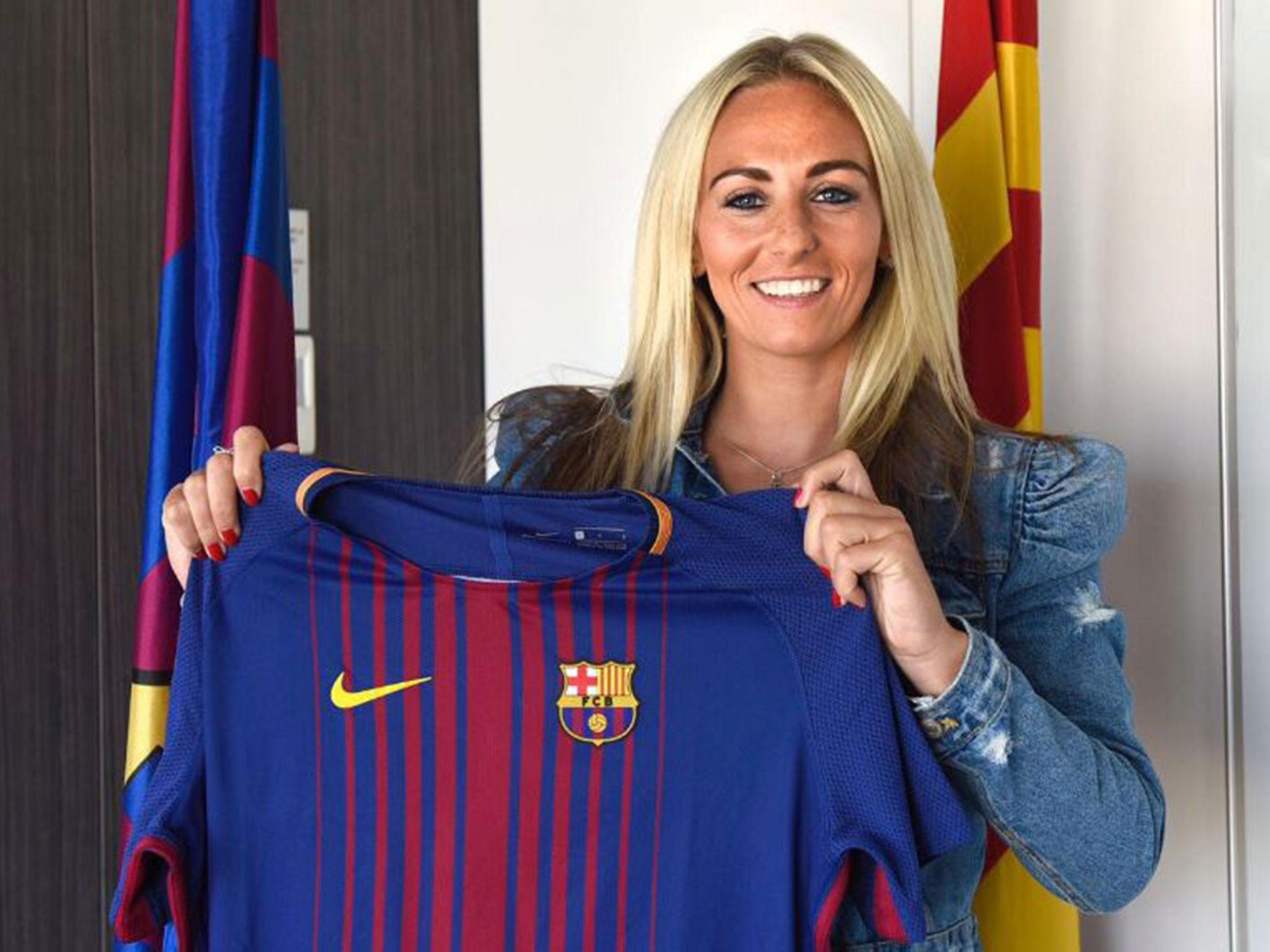Toni Duggan's move from Manchester City to Barcelona is a landmark transfer in women's football
The 25-year-old former Everton forward has agreed a two-year deal with the Spanish side and moves with immediate effect

Your support helps us to tell the story
From reproductive rights to climate change to Big Tech, The Independent is on the ground when the story is developing. Whether it's investigating the financials of Elon Musk's pro-Trump PAC or producing our latest documentary, 'The A Word', which shines a light on the American women fighting for reproductive rights, we know how important it is to parse out the facts from the messaging.
At such a critical moment in US history, we need reporters on the ground. Your donation allows us to keep sending journalists to speak to both sides of the story.
The Independent is trusted by Americans across the entire political spectrum. And unlike many other quality news outlets, we choose not to lock Americans out of our reporting and analysis with paywalls. We believe quality journalism should be available to everyone, paid for by those who can afford it.
Your support makes all the difference.Not many transfers in women’s football trend on Twitter and make the lunchtime BBC News, but Toni Duggan’s move from Manchester City to Barcelona is ground-breaking. Duggan, is not only the first English footballer to join Barcelona since Gary Lineker 31 years ago, her move confirms a new era for the women’s game, one which will be dominated by the big names of the men’s game.
In the early years of pan-European competition the Uefa Women’s Cup (now the Women’s Champions League) was mainly contested by what were effectively stand-alone women’s clubs such as Umea, of Sweden, Germany’s Turbine Potsdam and Fortuna Hjørring, of Denmark. Outside the hotbeds of Scandinavia and Germany there was little interest beyond family and friends.
The first sign of change came in 2007 when Arsenal became the first winners funded through the earnings of a male team. Now many names look familiar. Lyon and Paris St Germain contested this season’s final while Manchester City and Barcelona were the beaten semi-finalists. Next season’s competition will include Bayern Munich while Juventus have just announced plans to establish a women’s team.
The trend is mirrored in England where the FA Women’s Super League is dominated by female sections of established male teams. Arsenal’s dominance was ended when Liverpool won the championship in 2013 while Chelsea and Manchester City have won the last two titles. Everton, newly flush with cash, have announced a series of players signing full-time terms.
The advantage for the women’s game is the financial power of men’s clubs has enabled players to train full-time rapidly raising the standard, integration has improved expertise in areas such as medicine, and the brand strength has increased attendances. The disadvantage is when the men’s club has financial problems the women’s team can be cut adrift, as happened when Notts County Ladies were disbanded earlier this year.
For the players, though, the experiences are mainly positive and Duggan’s generation is the first to fully benefit. Though a Liverpool fan she spent her formative footballing years at Everton joining City in 2013 after the club suddenly decided to make an impact in the female game. Their rise to the peak of the English game has been rapid with Duggan scoring consistently, and at times spectacularly.
The 25-year-old, who will be a key figure as England take part in the European Championships later this month, converted the penalty that secured City their first FA Women’s Super League title in September, and was part of the team that won the Continental Cup in October. However, she only figured as a substitute in May as City completed a clean sweep of domestic trophies by winning the FA Cup.
The fierce competition for places at City – who this week signed another striker, Scotland’s Claire Emslie - may have been a factor in her exit. However, Barcelona’s growing commitment to women’s football increasingly makes them a big attraction for female players as well as male. While Manchester City drew less than 4,000 to their home Champions League semi-final with Lyon, Barcelona pulled in more than 10,000 to their tie with PSG.
Winning the Champions League is Barcelona’s declared target, and Duggan obviously feels she is more likely to do so in Catalonia than Manchester. What will be interesting is the reaction of their respective rival clubs when one of them succeeds. So far both Manchester United and Real Madrid have resisted establishing a female team – though both run coaching programmes for girls. The lack of profit in the women’s game is seen as the reason for their reluctance, but how long can they continue to stand aside?
Join our commenting forum
Join thought-provoking conversations, follow other Independent readers and see their replies
Comments